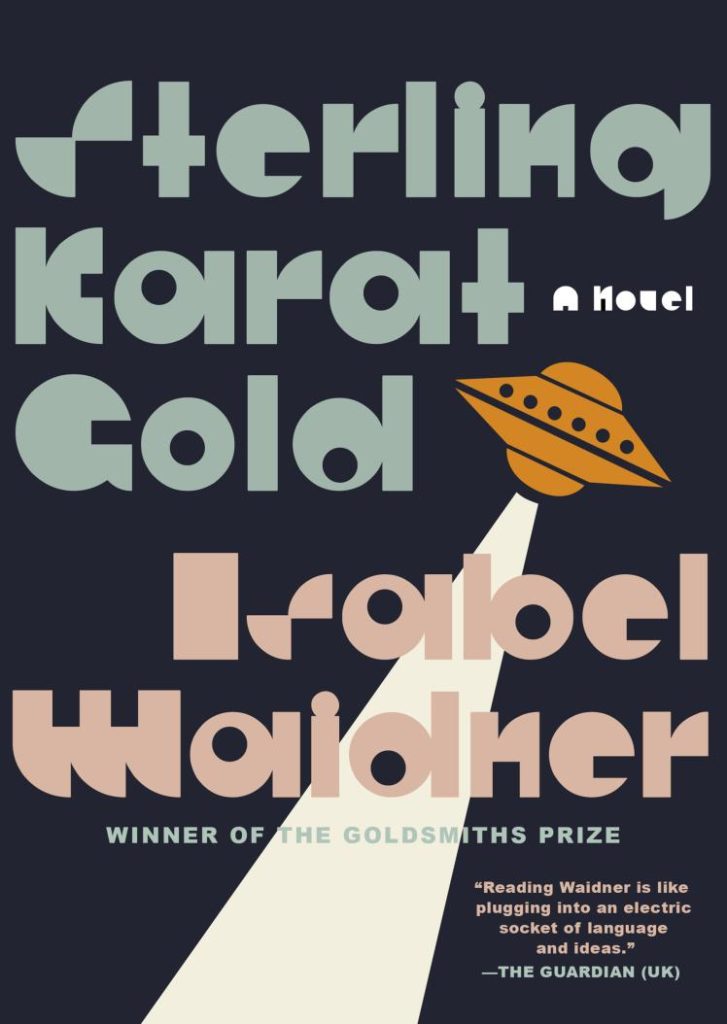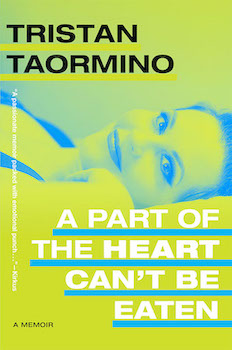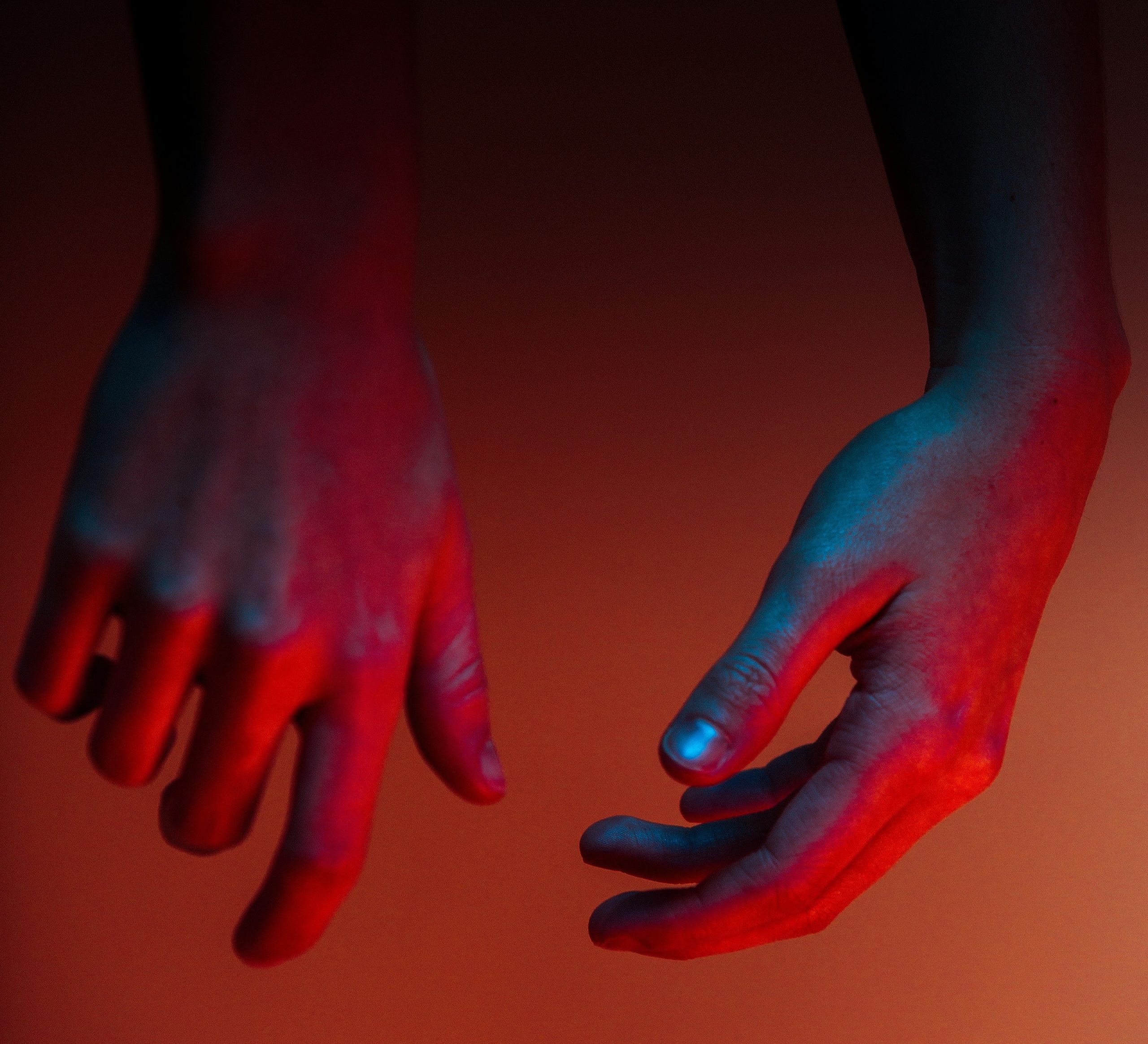Reading Lists
The Most Anticipated LGBTQ+ Books for Fall 2023
Myriam Gurba, Isle McElroy, and Justin Torres are among those with forthcoming titles

What even is time? I had a couple conversations this past year, some of them surrounding the publication of my non-chronologically structured novel We Do What We Do in the Dark, during which the concept of “queer time” came up, this idea that LGBTQ people experience time differently, almost four-dimensionally like Vonnegut aliens. We constantly look back to see evidence of our nascent selves, when queerness was less an identity than it was a feeling, and we constantly look forward to imagine a world finally ready to welcome us with open arms.
It’s hard to see the past clearly—so many of our childhoods are marked by denial instead of discovery—and even harder to see the future, especially for those of us who came of age in the shadow of AIDS and now find ourselves still very much in the throes of a pandemic that has disproportionately affected the most marginalized. Add to that the banning of our books, the rolling back of our civil rights, the daily threat of hate-fueled violence.
As Alex Marzano-Lesnevich writes in their brilliant essay on gender and futurity: the future is “The very thing we are all trying to hold onto, as we wait for it to arrive.” How difficult it is to imagine “the projected shape that future makes. The shadow (or light?) it casts over the present.”
Shadow and light, past and present and whatever comes next. These are the reconciliations that inform our stories. This is what art does. It allows us to see, concurrently, the past and the present and the future. It allows us to see, concurrently, the light and the dark. This is what queer art specifically does: it shows us that we have always been here and we always will be. Queer stories, like the ones listed below, do more than shine light on the shadows. They are the light in the shadows. They are living documents of our lives.
Forget I Told You This by Hilary Zaid (Sept. 1)
Winner of the Barbara DiBernard Prize in Fiction and the inaugural publication of UNP’s queer-run Zero Street imprint, Zaid’s second novel—following 2018’s acclaimed Paper is White—is a taut techno-thriller about a single mother’s descent into the shadowy world of Big Data and her ascension into selfhood.
A Part of the Heart Can’t Be Eaten by Tristan Taormino (Sept. 5)
One of the foremost sexual wellness advocates and educators chronicles her coming of age as a capaciously curious queer woman and the powerful but all-too-brief bond she shared with her queer father.
Creep by Myriam Gurba (Sept. 5)
From impeaching Joan Didion as the undisputed queen of California letters to describing a visit to an ex-girlfriend’s Midwestern family in the shadow of Matthew Shepherd’s death, from excoriating American Dirt to chronicling the abuse she experienced on her own book tour, the critic and memoirist delivers a profound collection of essays on the ways violence seeps into the lives of the marginalized. Gurba’s ability to deftly connect cultural and personal histories with heartbreaking poeticism and laugh-out-loud wit is often dazzling.
Fly With Me by Andie Burke (Sept. 5)
Despite a fear of air travel, Olive Murphy finds herself on a plane, traveling to run in a marathon honoring her brother. Murphy’s Law, of course, says that anything that can go wrong will go wrong, and unfortunately things in the sky go awry: a passenger falls ill, and it’s up to Olive, a nurse, to help him. Her act of heroism goes viral, as does the “relationship” that develops between Olive and the plane’s pilot, Stella, who wants to milk their newfound social media fame to advance her career. A soaring, swoony fake-dating tale.
The Trio by Johanna Hedman (Sept. 5)
Billed as “Sweden’s answer to Normal People,” Hedman’s sublime debut follows three driftless souls who found themselves drifting irresistibly toward one another in youth but have now become estranged. In the present, one of them has moved to New York, but he’s plunged back into the past, forced to consider what was and what could have been, when the daughter of the other two arrives with questions about her parents.
Wound by Oksana Vasyakina (Sept. 5)
Late last year, ten months after the invasion of Ukraine, the Russian government passed a law banning open expressions of LGBTQ identity, which they deemed “propaganda.” The voices of queer Russians are necessary now more than ever, to be broadcast loud and proud, so it feels particularly special to have this moving and wonderfully witty work of autofiction about a lesbian poet traveling from Moscow to her hometown in Siberia to inter her mother’s ashes.
Roaming by Jillian and Mariko Tamaki (Sept. 12)
A big book full of small, meaningful moments, the latest collaboration between the Tamaki cousins (after Skim and This One Summer) portrays the coming-of-age of three Canadian college students spending spring break in New York City, yearning to return to youth and desperate to begin their lives anew.
Wild Geese by Soula Emmanuel (Sept. 12)
A trans Before Sunset set in Copenhagen? Yes, please! Emmanuel’s joyful and achingly poignant debut follows Phoebe, an Irish doctoral student living a purposefully lonesome life in Denmark (her only companion is a dog named after Dolly Parton), who reconnects with her ex-girlfriend Grace over the course of one weekend. Every page bursts with wonder.
Cleat Cute by Meryl Wilsner (Sept. 19)
Wilsner is one of the hottest contemporary f/f romance writers right now, and the anticipation for their latest scorcher is at a fever pitch. In the impeccably named Cleat Cute, two American soccer stars—one a cagey veteran, the other a wide-eyed rookie—must deal with their chemistry both on and off the field. USWNT fans who shipped Kristie Mewis and Sam Kerr long before those two made it official: this one’s for you.
Denied by Michelle J. Manno (Sept. 19)
For nine months, Manno was embedded within the Midwest State University women’s basketball team, an elite and competitive DI program. Immersed in that insular yet high-stakes world, she observes firsthand how unyieldingly female athletes—particularly queer, Black, and/or masculine-presenting—are policed both within and without.
Inverse Cowgirl by Alicia Roth Weigel (Sept. 19)
An intrepid advocate for the rights of intersex people and one of the stars of the Focus Features documentary Every Body, Weigel brings her dauntless and infectious energy to the page in this memoir-in-essays, an “invitation to dream beyond boxes.”
People Collide by Isle McElroy (Sept. 26)
Newlyweds Eli and Elizabeth are a pair of Americans living in Bulgaria, their union one in which “love came secondary to the bureaucratic convenience that marriage provided.” Their relationship—to themselves and one another—is upended, however, when husband and wife seem to swap bodies. When Elizabeth-as-Eli disappears, Eli-as-Elizabeth searches not only for a spouse by a sense of self-understanding. The result is a little Kafkaesque, a little Hitchcockian, a little Freaky Friday, but McElroy makes this dizzying story their own.
A Haunting on the Hill by Elizabeth Hand (Oct. 3)
Shirley Jackson Award winner Elizabeth Hand, a criminally underrated writer of atmospheric mysteries, received authorization from the Jackson estate to pen a return to Hill House. This spine-tingling story is less a sequel than a standalone tale, following a playwright who stumbles on the eerie Victorian mansion and decides to stay there—with her girlfriend and a troupe of actors—as inspiration to complete her latest project. Of course, she gets more than she bargained for, as the house (much like Hand’s novel) has a life of its own.
Blackouts by Justin Torres (Oct. 10)
The game-changing author of We the Animals returns with his first novel in ten years, another inventive and beguiling book about memory and desire and what is said and unsaid—both by ourselves and by those who tell our stories.
Family Meal by Bryan Washington (Oct. 10)
Laconic, melancholic, and lovely, the latest from the author of Memorial and Lot follows Cam, returning home to Houston after the death of his lover, and TJ, Cam’s childhood friend whose family runs a local bakery. Despite the story’s heaviness, Washington’s craft makes it read so effortlessly.
Opinions by Roxane Gay (Oct. 10)
The audacious feminist icon collects a decade’s worth of her most essential essays and columns—on everything from police brutality to the Fast and the Furious franchise, from Trump and Dylann Roof to Janelle Monae and Joyce Carol Oates. Word by powerful word, Gay builds both an always-truthful mirror reflecting the fractures of the past ten years and a window into a more equitable future.
Everything I Learned, I Learned in a Chinese Restaurant by Curtis Chin (Oct. 17)
Chin, a journalist and co-founder of the Asian American Writers’ Workshop, serves up a tender and stirring chronicle of his coming of age in 1980s Detroit, particularly the melting pot of Chung’s Cantonese Cuisine, a vinyl-seated site of solace and the locus of a richly diverse community.
None of the Above by Travis Alabanza (Oct. 17)
“When you are someone who falls outside of categories,” Alabanza writes in their powerful treatise on being Black and trans nonbinary, “a lot of things are said to you. You often become a place to hold other people’s confusion.” Alabanza, a performer and theatermaker, brilliantly structures their book as a response to the many inane and insidious phrases people have uttered at them, misunderstandings now reclaimed and turned into occasions to better understand (and celebrate) themselves.
The Happy Couple by Naoise Dolan (Nov. 7)
Wry, laconic, and swoony, Dolan’s first novel—2020’s Exciting Times—was an auspicious debut, a queer love triangle that captured acutely the ways desire and class intersect. Fans will be happy to know that there’s no sophomore slump in this follow-up, about a pair of about-to-be newlyweds and their complicated cast of wedding guests.
Normporn by Karen Tongson (Nov. 7)
What begins as a searing cultural critique of the prevalence of sentimental, whitewashed television shows—This is Us, Parenthood, etc.—unfurls brilliantly into a soul-stirring reflection on personal and cultural grief and the palliative effects of plainness. Tongson exquisitely captures what it means for queer people in particular to find solace in the quotidian.
Critical Hits, edited by J. Robert Lennon and Carmen Maria Machado (Nov. 21)
Charlie Jane Anders on the anti-capitalist pleasures of portal fantasies, Alexander Chee on Ninja Gaiden Black and the anxieties of authenticity, nat steele on playing Halo as a trans woman and the double-edged sword (or energy sword as the case may be) of identifying with an armor-clad protagonist. This anthology edited by Carmen Maria Machado and J. Robert Lennon presents a veritable arcade of essays on the cultural vitality of video games.
Alice Sadie Celine by Sarah Blakley-Cartwright (Nov. 28)
A shrewd and moving meditation on the many complexities of womanhood, Blakley-Cartwright’s first novel tells the story of two childhood best friends now in their twenties, Sadie and Alice, the latter of whom enters into a complicated fling with the former’s mother, a famous feminist and academic.
Yours for the Taking by Gabrielle Korn (Dec. 5)
Gatekeeping girlboss insidiousness, climate injustice and ecological inequality, love in the time of perpetual apocalypse—Korn’s thrilling work of speculative fiction, about billionaire-funded bubbles designed to seal off select people from inhospitable living conditions, trains a big, queer black mirror on the sociopolitical iniquities of our time.
Don’t forget to check out the following titles, published January through August 2023!
If Tomorrow Doesn’t Come by Jen St Jude (May 9)
How can we make room for love–love of another, love of self–in the midst of perpetual apocalypse? It’s a question many of us have been asking on the daily these past few years, and it’s a question Jen St. Jude posits in her full-hearted speculative debut. Avery is a college student whose feelings of loneliness and hopelessness are upended when the world learns an asteroid will destroy life on earth in exactly nine days. St. Jude is a gorgeous writer (and vital literary citizen!) and her depiction of finding light in the ever-present dark will resonate in our precarious present and throughout whatever tomorrows we have left.
The Celebrants by Steven Rowley (May 16)
Every year for the past three decades, a group of friends who met in college congregate at a house in Big Sur to hold faux-funerals for one another, celebrating and/or mourning life events and letting one another know how much they are loved while they’re all still alive–leave nothing left unsaid, is the unofficial motto. But this year is different: one of them, Jordan (whose husband is also named Jordan and so they are therefore ‘the Jordans’) has terminal cancer. Thing is, he’s not telling the rest of them. Rowley’s novels deftly oscillate between tear-jerker and knee-slapper, books that brim with all of life’s big and small emotions, and his latest is no exception. It might just be his best yet.
Dykette by Jenny Fran Davis (May 16)
The Big Chill goes gay in Davis’s raunch-com about six queer Brooklynites spending the holidays at a Hudson farmhouse. Come for the sometimes-riotous relationship drama, stay for the myriad cultural in-jokes (Lea Delaria, Maggie Nelson, and Jordy Rosenberg’s Confessions of the Fox all get shoutouts).
Quietly Hostile by Samantha Irby (May 16)
Safe to say that we could all use the sweet and salty joy of a new Samantha Irby collection. In a book dedicated to Zoloft, Irby offers often-hilarious, sweatpants-clad missives about trying to find moments of peace in a belligerent world and why it’s perfectly okay to like things other people call basic.
The Adult by Bronwyn Fischer (May 23)
A college freshman enters into a complicated relationship with an alluring older woman whose wife has just left her. Fischer’s dreamy debut portrays two people at wildly different stages of life who are nonetheless both stuck in that liminal space between youth and maturity.
Wild Things by Laura Kay (May 23)
Stuck in a rut, risk-averse Eleanor decides to embark upon a year of wildness: each month (but only on weekends, naturally), she has to do one thing far out of her comfort zone. What begins as a kind of dare issued by her closest friend and unrequited crush becomes a touching, if messy, path to self-enlightenment.
The Late Americans by Brandon Taylor (May 23)
Brandon Taylor probably needs no introduction to readers of these pages, but here goes: with his Booker-nominated novel Real Life and his Story Prize-winning collection Filthy Animals, Taylor has proven himself an exacting portraitist of the inner lives of outsiders, of intimacy’s grandness. He returns with a polyphonic novel centered on a group of young Iowa City friends on the cusp of whatever comes next and how their relationships help and hamper them along the way. (Taylor is the former Senior Editor of Recommended Reading.)
Lesbian Love Story by Amelia Possanza (May 30)
In her work as a publicist, Possanza has championed many wonderful writers, and now we get to champion her and her incredible book, a work of history and memoir that crystalizes what so many queer women know: it’s impossible to write our own autobiographies without the biographies of those who came before us. Subtitled “A Memoir in Archives,” Possanza’s centuries-spanning document–which melds her own story with hidden, intimate histories of drag kings and olympians, artists and activists–is a manifesto of love: of erotic love and platonic love, of familial and communal love, and maybe most importantly, self-love.
The Male Gazed by Manuel Betancourt (May 30)
Do I want them or do I want to be them? This is perhaps one of the most central existential questions queer people ask themselves on the daily. Betancourt, one of the best film/television critics around, probes this quintessential conundrum by examining what he has learned about masculinity through watching movies. (Betancourt is EL’s former film columnist. Take a look at his hilarious and smart work here)
Pageboy by Elliot Page (June 1)
To say the Academy Award-nominated actor’s memoir is hotly anticipated is an understatement. So too is calling it a Hollywood tell-all. Sure, there’s probably a good deal of behind-the-scenes movie-making gossip fodder, but Page is also a groundbreaking activist; his coming out was—and still is—an act of game-changing bravery. Having lit up the big and small screens, he’ll now be blazing bookshelves.
Happy Stories, Mostly by Norman Erikson Pasaribu (June 6)
In their debut English-language collection of speculative and absurdist fiction, Pasaribu adeptly renders that quintessentially queer liminal space between joy and melancholy.
Boys Weekend by Mattie Lubchansky (June 6)
A horror dramedy drawn in the style of a 90s cartoon, Lubchansky’s graphic novel about a newly-out trans person invited to attend a bachelor party for their old college buddy satirizes crypto-bro idiocy while delivering a profound meditation on selfhood.
Countries of Origin by Javier Fuentes (June 6)
Fuentes’s sensuous first novel centers on an undocumented pastry chef in Manhattan whose already liminal existence is thrown into further uncertainty when he’s forced to return to Spain. Yet on the plane back to Madrid, he meets a college student flying home to visit his aristocratic family, and what follows is an exquisite story of love—for another, for oneself, for home.
Moby Dyke by Krista Burton (June 6)
In the midst of lockdown, journalist Krista Burton took stock of what she missed most about being out in the world: “the feeling of being in a packed, sweaty dyke bar, surrounded by queers so close they’re touching me.” And so she sets off on an epic pilgrimmage across the country to visit some of the only remaining lesbian bars in America. Part celebration and part elegy, Burton’s quest becomes even more significant when she invites her partner, a trans man, to join, stirring up necessary conversations about who is welcome where.
Open Throat by Henry Hoke (June 6)
“I try to understand people but they make it hard,” says the lonely mountain lion that narrates this quiet yet forceful roar of a novel. They reside beneath the Hollywood sign, observing hikers, confused and compelled by people’s daily dramas. A book full of humanity that you can sink your teeth into.
Going Bicoastal by Dahlia Adler (June 13)
Not only is Adler a vital supporter of queer literature, but she is also a gifted writer of utterly delightful queer romcoms. Here, she toys with the bisexual trope of “having to choose.” We follow Natalya Fox, forced to decide between spending the summer in New York City, where she’s nursing a serious crush on a redheaded punk girl, or Los Angeles, where she’ll meet a guy interning in the same office. In alternating chapters taking place in parallel realities, we see what could be. Yet rather than a story of desire halved, what unfolds is a story about a girl embracing the wholeness of who she is.
The Gulf by Rachel Cochran (June 13)
In this captivating mystery set in 1970s Texas, a young woman named Lou helps renovate an old mansion for her beloved neighbor and surrogate maternal figure, Miss Kate, hiding both her grief over her brother’s death in Vietnam and her own identity. When Miss Kate is murdered, her hopes for solace are shattered. Then Joanna, Lou’s former love and Miss Kate’s estranged daughter, returns to town, and myriad secrets begin to unravel.
Leg by Greg Marshall (June 13)
Written with a bright-eyed wryness that belies the difficulties depicted within, Marshall’s memoir chronicles his coming to terms with being a gay man with cerebral palsy, the latter a diagnosis kept from him all his life.
To Name the Bigger Lie by Sarah Viren (June 13)
At once meditative and exhilarating, Viren’s memoir—which combines a rumination on her revered high school teacher’s propensity for pushing conspiracy theories with an eye-popping account of false misconduct allegations leveled at her wife—is for the philosophy major gays, a cavernous allegory about truth and justice.
Lucky Red by Claudia Cravens (June 20)
The straight-shooting heroine of this thrilling, not-at-all-straight western is a recently orphaned redheaded teenager whose fiery locks land her a job as a “sporting woman” at a bustling brothel. “Greener than a Texas springtime,” Bridget eventually takes to life at the Buffalo Queen Saloon, but her mettle is tested when she crosses paths with a female bounty hunter.
Mrs. S by K. Patrick (June 20)
Patrick’s sultry, penetrating debut is about a chest-binding soft-butch Aussie who gets a job as a Matron at an elite British boarding school and becomes infatuated with the Headmaster’s wife. Much more than a trope-y sapphic fantasy, this first novel is a perceptive exploration of the pains and pleasures of being perceived.
A Place for Us by Brandon J. Wolf (July 1)
A beautiful book about a brutal, world-shattering tragedy, Wolf’s memoir explores the personal and political fallout of the Pulse nightclub shooting from the point of view of those who survived it. An essential testament to the togetherness and resilience of the queer community.
All-Night Pharmacy by Ruth Madievsky (July 11)
A truly wonderful interviewer and essayist, Madievsky arrives with her luminous debut novel. Our narrator is a pliant high school graduate trying to free herself from the grip of her sister’s approval. Possible salvation comes when Sasha, a queer Jewish refugee from Moldova, announces herself as the narrator’s spiritual guide. At once atmospheric and visceral.
The Sea Elephants by Shastri Akella (July 11)
Akella’s debut novel is a captivating coming-of-age tale set in 1990s India, about a boy who discovers solace and purpose within a traveling street theater troupe. Enmeshing himself among these vibrant storytellers, performing the Hindu myths from his childhood, he finds both love and refuge from his troubled past.
The Lookback Window by Kyle Dillon Hertz (Aug 1)
“To survive, you live through it, but never look back.” That’s the motto Dylan, a survivor of sex trafficking, repeats as he navigates the aftermath of his traumatic past. Then a window opens: a law is passed inviting people like Dylan to sue their abusers. But what does justice even look like? Hertz’s haunting debut gazes unwaveringly into the darkness—and unexpected light—of memory.
Bellies by Nicola Dinan (Aug 1)
The best love stories are the ones in which the characters’ perceptions of themselves and each other change in surprising ways. Bellies is a grand, affecting story of shifting identities and shifting intimacy, following Tom and Ming, a couple whose deep affection is tested when the latter announces her desire to transition.
Lush Lives by J. Vanessa Lyon (Aug 1)
The second release from Roxane Gay’s publishing imprint, Lyon’s swoonworthy romance between a struggling artist who inherits her aunt’s Harlem brownstone and an auction house appraiser is also a sumptuous story about the complicated costs of ambition.
Congratulations, The Best is Over! by R. Eric Thomas (Aug 8)
“[B]etween the best days of life and the worst days of life, between what you thought your life would be and what it is, between two people, there is a vivid and strange expanse in the middle,” Thomas writes in his latest collection, a funny and soul-stirring series of dispatches from this “middle.” Following his bestseller Here For It, Thomas perfectly captures the preposterous purgatory of life—being a firsttime homeowner, returning to a place you promised yourself you wouldn’t step foot in again—particularly in the midst of the pandemic.
Nobody Needs to Know by Pidgeon Pagonis (Aug 15)
For many years now Pagonis’s activism as an advocate for the intersex community has been indispensable, helping shine a much-needed light on an identity that is so often misunderstood and ignored. Now they’re bringing that enlivening energy to the page with their luminous memoir about the fight for selfhood.
Thin Skin by Jenn Shapland (Aug 15)
Shapland follows the National Book Award finalist My Autobiography of Carson McCullers with another blazing book about the permeability between personal history and the sociopolitical systems that bind us. Through the lens of her dermatological diagnosis of extremely sensitive skin, she investigates many significant questions of our current age—climate change, capitalism run amok, female autonomy—and our “utter physical enmeshment with every other being on the planet.”
Learned by Heart by Emma Donoghue (Aug 29)
If you’re mourning the cancellation of HBO’s Gentleman Jack (raises hand), Room author Emma Donoghue’s got you. Her entrancing latest centers on the forbidden teenage romance between Eliza Raine and Anne Lister, she of sapphic, suffer-no-fools fame. Donoghue is so good at rendering the intensity of first queer love.
The New Life by Tom Crewe (Jan. 3)
Crewe, an editor at the London Review of Books, debuts with a stimulating, sensuous novel set in 1890s Britain and centered on two men, each in their own complex hetero-passing marriages who collaborate—through Zoom letters—on a chronicle of queer life that will challenge Victorian sexual mores.
Decent People by De’Shawn Charles Winslow (Jan. 17)
Winslow’s incredible debut, In West Mills, a largehearted decades-spanning tale about the insularity and kinship of a close-knit community, was awarded The Center for Fiction’s First Novel Prize. In this follow-up, Winslow returns to West Mills with a story exploring the reverberations of a shocking murder.
I Keep My Exoskeletons to Myself by Marisa Crane (Jan. 17)
In the dark mirror of this inventive dystopia, we see an America in which a shame-obsessed carceral system attaches shadows to those they’ve deemed wrongdoers–chimerical reminders of their crimes that sometimes linger into the next generation. Crane’s story centers on a new mother, grieving the loss of her wife, whose daughter has been born with two shadows. What unfolds is a tale of a uniquely queer form of parenthood and resistance.
Tell Me I’m Worthless by Alison Rumfitt (Jan. 17)
Mike Flanagan, eat your heart out: Rumfitt’s fantastic first novel queers contemporary haunted house horror with this ghastly tale of two friends who, in attempt to put spectres of the past and present to rest, return to the abandoned house in which they spent one terrifying, traumatic night.
After Sappho by Selby Wynn Schwartz (Jan. 24)
A la Michael Cunningham’s The Hours, Lambda finalist Schwartz’s first novel forms a triptych of women who refuse to be stifled by societal expectations of femininity. The story unfolds as a series of sensuous fragments that would make the titular Greek poet proud.
Big Swiss by Jen Beagin (Feb. 7)
With Pretend I’m Dead and Vacuum in the Dark, Whiting Award-winner Jen Beagin swept onto the scene as a singularly sardonic sad-girl absurdist. Those two novels were about a housecleaner in New Mexico who takes suggestive photos in her clients’ abodes; for Big Swiss, Beagin brings her acerbic wit to the Hudson Valley. The story centers on Greta, a transcriptionist for a sex therapist dwelling in a dilapidated Dutch farmhouse who soon becomes obsessed with one of her employer’s newest clients (the titular Swiss, a European gynecologist who’s never had an orgasm). This is erotic cottagecore as only Jen Beagin can do it.
Confidence by Rafael Frumkin (Feb. 7)
Theranos but make it gay. In this Ripley-esque romp, two men—occasional lovers—create a fake empire based entirely on their own charisma and an impossibly auspicious wellness product that promises bliss to those who use it.
Couplets by Maggie Millner (Feb. 7)
Millner’s story-in-verse—trying to classify this wonderfully amorphous book about the fluidity of desire is entirely beside the point—centers on a woman who falls in love with another woman for the first time, a relationship that upends her ideas of intimacy and herself: “That lust to me was wanting to transgress/beside another. To be so totally compelled./To share a truth you have to lie to tell.”
Endpapers by Jennifer Savran Kelly (Feb. 7)
In Kelly’s first novel, a New York bookbinder coming to terms with her genderqueer identity finds a love letter scribbled on a page torn from a midcentury lesbian pulp novel. What ensues is a dizzying, intimate mystery, an exploration of how we become engrossed in the stories of others in order to tell ones of ourselves.
Hijab Butch Blues by Lamya H (Feb. 7)
One of the most difficult and painful experiences of growing up religious and queer is figuring out whether you can reconcile those two important facets of your life. Often, that reconciliation feels impossible. Yet Lamya H’s memoir about coming of age as a queer hijabi Muslim offers an inspiriting vision of a world in which queerness and the Quran are not only compatible but illuminative of one another.

Sterling Karat Gold by Isabel Waidner (Feb. 7)
In a recent New York Times feature on how to read one’s way through London, Booker-winning author Bernadine Evaristo lavished this praise upon Isabel Waidner: “Their explosive sensibility and style are as far removed from mediocre prose and middle-class manners as you can imagine.” And it’s true: Waidner’s refreshingly absurdist third novel, which won Britain’s Goldsmiths Prize, is a topsy-turvy journey across Camden Town from the point of view of a nonbinary migrant, a Kafkaesque adventure that encompasses bullfighters, footballers, time-traveling spaceships, and a high-drama trial.
Sweetlust by Asja Bakić (Feb. 14)
A teen table-tennis prodigy attends a summer camp and discovers something sinister stalking the girls there. A trans woman living in an America sans men joins her friends on an excursion to an erotic VR theme park. Bakić second collection, following Mars, offers spectral, speculative tales of womanhood’s fluidity and ferality.
Wanting: Women Writing About Desire, edited by Margot Kahn and Kelly McMasters (Feb. 14)
Melissa Febos on the musicality of orgasm. Kristen Arnett on the wild tenderness and tender wildness of yard work. Keyannah B. Nurse on polyamory as a powerful archive of history and pleasure. Torrey Peters on the fried tilapia that portended the end of her marriage. The essays in this voluptuous, multivarious volume comprise an essential compendium of female desire.
Scorched Grace by Margot Douaihy (Feb. 23)
The inaugural release of Gillian Flynn Books, Scorched Grace centers on Sister Holiday, a chain-smoking Catholic school music teacher turned amateur sleuth. If you’re not sold by a punk rock nun solving mysteries then can your soul even be saved?
Finding the Fool by Meg Jones Wall (Mar. 1)
Autostraddle columnist Meg Jones Wall offers an all-levels guide to reading the tarot, a compendium of resources to help beginners and longtime practitioners alike conjure from the cards a deeper understanding of one’s inner and outer worlds.
Monstrilio by Gerardo Sámano Córdova (Mar. 7)
The beastliness of grief is heartbreakingly rendered in Córdova’s folklore-inflected first novel, which follows a bereaved mother taking the lung of her recently deceased son and nurturing it back into the boy she lost. But death can never be totally thwarted, and the son that returns isn’t quite the same.
Brother and Sister Enter the Forest by Richard Mirabella (Mar. 14)
Mirabella’s debut novel—about a pair of once-close siblings and how the bruises of their youth swell into adulthood—is both bracing and a balm, his softly disarming sentences like cotton puffs that absorb the pain of deep cuts.
The Dance Tree by Kiran Hargrave (Mar. 14)
In sixteenth century France, a woman began to dance in the Strasbourg city square. What started as an individual’s mysterious paroxysm became a full-blown plague of supposedly religious mania. Hargrave, whose previous novel The Mercies was a bewitching work of historical fiction, sets her tale of three women trying to break free of society’s bonds against the backdrop of this strange phenomenon.
The Lost Americans by Christopher Bollen (Mar. 14)
Bollen is a modern master of the Highsmithian literary thriller. His previous book, A Beautiful Crime, was a Venice-set caper about lovers turned con men, a mystery that tapped into the Floating City’s labyrinthine nature. Here, he flies readers to Cairo to uncover a mystery about an American defense contractor who’d reportedly died by suicide and his increasingly suspicious sister working to understand what really happened.
Biography of X by Catherine Lacey (Mar. 21)
Over the course of three novels and a story collection, Catherine Lacey has become one of our most innovative literary practitioners, a writer capable of bending gender and genre. Lacey’s fifth work of fiction is a widow’s chronicle of her late wife, an artist known as X who has remained an enigma to the world at large and perhaps most of all to the woman who loved her.
The Fake by Zoe Whittall (Mar. 21)
Stories about scammers permeate contemporary media partly because, for the outside observer, there’s a sense of superiority at being able to preemptively spot the red flags, to declare “This would never happen to me.” But the head and the heart are seldom in sync, especially for the lonely and vulnerable. Take recent widow Shelby and divorcé Gibson, two people who, unbeknownst to one another, have fallen for the same woman, Cammie, a swindler who might just be the match to the tinder of their lives.
The Heavy Bright by Cathy Malkasian (Mar. 28)
Chronicles of Narnia meets The Handmaid’s Tale in this gorgeous allegorical epic. It’s set in a fantasy world in which men known as Commanders ravage and pillage the land and its people, their power coming from ancient black stones passed down to them by their ancestors. The destruction goes unchecked until one day, a young tomboyish girl discovers the secret to defeating the Commanders once and for all (and falls in love along the way).
Small Joys by Elvin James Mensah (Apr. 11)
A largehearted look at the importance of found family, Mensah’s first novel focuses on the lifesaving friendship between a cast-off son on the brink of self-harm and the easygoing new roommate whose affection becomes a balm. Small Joys dwells in the sometimes-fleeting moments of pleasure and happiness that stave off the iniquities of the world.
Juno Loves Legs by Karl Geary (Apr. 18)
Shuggie Bain vibes abound in this tenderhearted tale by Karl Geary, whose previous book was shortlisted for the Costa First Novel Award and France’s prestigious Prix Femina. It follows two misfit teens in 1980s Ireland whose love for one another offers solace from the sociopolitical strife of an Emerald Isle in the midst of growing pains.
The Weeds by Katy Simpson Smith (Apr. 18)
The Everlasting, Smith’s previous novel, was a polyphonic, multi-century-spanning trip across Rome, and here she returns to the Eternal City for a story about two women hundreds of years apart who are nonetheless connected by the solace of botany, two lost souls cataloging plants in the Colosseum ruins in an attempt to mend their own broken hearts.
Rosewater by Liv Little (Apr. 25)
Little’s sensuous and snappy kunstlerroman about a young, struggling poet in South London is the first release from Get Lifted Books, a publishing imprint co-led by singer John Legend. When Elsie is evicted from her flat, she’s forced to move in with her former best friend, a situation both strained and one of potential salvation–a bulwark against the agonies of a bartending job and an affair with her boss.
The Skin and Its Girl by Sarah Cypher (Apr. 25)
Cypher’s vibrant debut centers on Betty, a Palestinian-American girl born with cobalt blue skin. In her adulthood, she discovers and tries to decipher journals kept by her aunt—the family matriarch and keeper of their lore—a complex woman whose story begins to color in pieces of Betty’s own.









